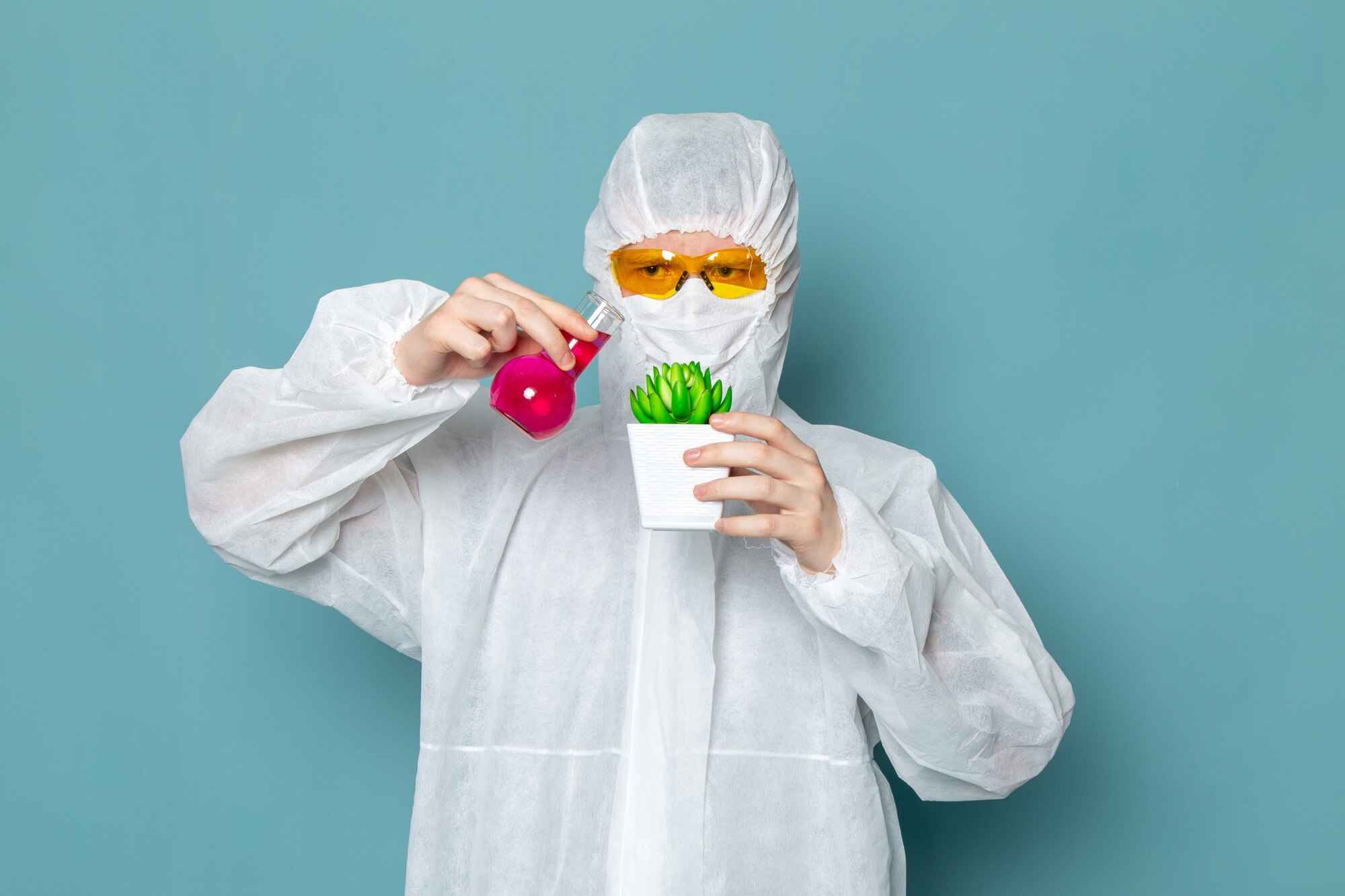 SHARE
SHARE
Food Safety: Definition, Importance of Food Safety, and How to Implement it in the F&B Industry
Briantama Afiq Ashari
Did you know that food safety is something that must be paid attention to, especially if you have a food or beverage business?
In essence, good safety is often considered trivial, even though it concerns the health of many people.
Small mistakes in food processing can have a big impact, even causing food poisoning.
Therefore, food safety is a mandatory aspect that you must pay attention to! So, what is food safety? Come on, let's discuss it!
What is Food Safety & Why is it Important?
So, in general, food safety is an effort to ensure that food is safe from biological, chemical or foreign object contamination that could endanger health.
Maybe you've heard of cases of food poisoning or products being withdrawn from the market because they were contaminated? Well, that happened because food safety was not implemented properly.
In the food and beverage industry, food safety is a procedure and commitment to maintaining consumer health. If the food sold is contaminated, the impact could be serious.
Customers could get poisoned and get sick, which could result in your business being subject to sanctions and damaging your reputation. Now, dIn Indonesia, food safety is strictly regulated in various regulations.
Food Safety Legislation
One of the main regulations is Indonesian Government Regulation No. 28 of 2004, which regulates food safety on a national scale.
Apart from that, in the F&B industry, the implementation of food safety also refers to Minister of Health Regulation No. 1096 of 2011 concerning Hygiene & Sanitation of Catering Services.
This regulation emphasizes that every business actor in the food and beverage sector is obliged to implement food safety standards.
If violations are found, especially if there have been complaints from consumers who have experienced health problems due to the products they consume, then strict sanctions will be applied.
Food Safety Practices in the F&B Industry
Well, right now, consumer awareness of food quality is increasing, making the implementation of food safety increasingly important.
There are 5 main steps in food safety practices that must be implemented, namely:
1. Keeping Clean
Pathogenic microorganisms can easily move through soil, water, animals and humans.
Therefore, hygiene must be maintained, washing hands before handling food and after using the toilet is a mandatory step.
All surfaces that come into contact with food, such as cutting boards, knives and other kitchen utensils, should be washed regularly.
Apart from that, the kitchen must be kept clean and free from insects or other animals that can contaminate food.
2. Separating Raw and Cooked Foods
The second is to separate raw and cooked food. Do not use the same equipment to process raw and cooked food without washing it first.
Using separate containers is also important, you know!
3. Cooking at the Right Temperature
Food must be cooked at a temperature sufficient to kill harmful microorganisms.
Oh yes, food that is reheated must also reach a minimum temperature limit, so that it remains safe to consume.
4. Maintaining Food Temperature
Cooked food should not be left at room temperature for more than two hours.
Storage in the refrigerator must be done at a temperature below 4°C, while for the freezer, the recommended temperature is -17°C.
5. Using Safe Raw Materials
The water and raw materials used in food production must be in the safest conditions. Contamination can occur from water, ice, or food that is moldy or damaged.
Therefore, make sure to always choose fresh and good quality food ingredients.
Fruit and vegetables should be washed before consumption, and food that is past its expiration date should be thrown away immediately.
Read Also: The Secret to Success of RM Padang Payakumbuah and its Business Opportunities
Food Safety vs. Food Safety Food Defense: What's the Difference?
Source: Freepik
Did you know there is also the term food defense? Well, in the world of food, there are two main concepts that are often discussed, namely food safety and food defense. Both aim to ensure that the food consumed remains safe.
However, the approach and focus are different, you know! Food safety is related to preventive measures, so that food is not contaminated by dangerous substances, such as chemicals, pathogenic microorganisms, or foreign objects.
This process is more preventive in nature and is carried out so that food remains safe for consumption without the risk of health problems.
In Indonesia, this aspect has been regulated in Government Regulation Number 86 of 2019 concerning food safety.
On the other hand, food defense focuses more on protecting food from the threat of contamination carried out intentionally by irresponsible parties.
This threat could be in the form of sabotage, illegal mixing of hazardous materials, or fraudulent actions from manufacturers who use inappropriate chemicals in food production.
This food defense concept is emphasized by the FDA (Food and Drug Administration) in the United States.
Now, Simply put, food safety focuses on preventing unintentional contamination in the food production and distribution process.
Then, food defense aims to ward off possible sabotage or criminal acts that could threaten food security.
These two aspects are equally important in ensuring that the food consumed remains safe and of good quality.
You understand, right? So, why is food safety important?
Why is Food Safety So Mandatory?
Mistakes in food handling can have serious consequences, ranging from food poisoning to losing customer trust.
Here’s why food safety is so important!
1. Prevent food-borne illnesses
We all want delicious and safe food, right? Unfortunately, without food safety, food can become a nest for bacteria such as Salmonella or E. coli which can make consumers sick.
If this happens, it's not just customers who lose, the business can also be affected.
2. Protecting Business from Losses
Furthermore, to protect the business from losses. Just think if your restaurant or F&B business must withdraw products from the market due to food safety issues. The costs of withdrawing products, losing customers, and even sanctions from the government can cause a business to suffer huge losses.
3. Increasing Consumer Confidence
Apart from the reasons above, today's consumers are increasingly conscious about the quality of the food they consume.
Well, if your business is known for implementing high food safety standards, customer trust will definitely increase.
4. Reducing Food Waste
Damaged or contaminated food must be thrown away, and that means wasted money.
So, by implementing good food safety, the risk of wasted food can be minimized, so that business operations become more efficient.
5. In accordance with International Standard
If you plan to take your culinary business to an international level, food safety standards are something that must be met.
Other countries have strict regulations, so make sure your business has implemented food safety according to global standards.
So, those are some of the reasons why food safety is important, you understand, right?
However, some people still think that food safety is a small thing that doesn't need to be paid attention to. As a result, many errors arise.
Therefore, for those of you who work in the culinary industry or just like cooking, let's understand the food safety mistakes that are often made so they can be avoided!
Read Also: Modern Warmindo Innovation! Here's How to Get More Attention to Your Indomie Food Stall
The Main Key to Food Safety that is Often Ignored
Sumber: Freepik
1. Not maintaining proper hygiene
First, one of the main keys to food safety is cleanliness. Many people still underestimate the habit of washing their hands before and after processing food.
In fact, hands can be the main medium for spreading bacteria. Apart from that, kitchen equipment such as knives and cutting boards must also be cleaned properly, so that contamination does not occur.
Don't forget, the kitchen area must also be free from insects or rodents that can carry disease.
If cleanliness is neglected, the reputation of your culinary business could be threatened, you know!
2. Mixing Raw Ingredients with Cooked Food
Have you ever put raw meat and vegetables in one container? Well, this is a big mistake in food safety.
Contamination occurs when bacteria from raw food is transferred to cooked food.
The effect? Can cause food poisoning! Make sure you always use separate containers and tools for raw ingredients and cooked food.
Also use different cutting boards for cutting meat and vegetables so that there is no transfer of bacteria.
This is very important to pay attention to, so that contamination does not occur.
3. Cooking Food at the Wrong Temperature
Many people don't realize that cooking at the wrong temperature can keep dangerous bacteria alive.
So, meat, chicken and seafood must be cooked until the internal temperature reaches a minimum of 70°C to be safe for consumption.
In addition, reheated food must also reach a safe temperature before consumption.
Don't just keep it warm, make sure the heat is even so that all remaining bacteria can die.
4. Leaving Food at Room Temperature For Too Long
One of the mistakes that often occurs in food safety is leaving food to cook at room temperature for too long.
Bacteria grow rapidly at temperatures between 5°C to 60°C, which is known as the "danger zone".
Food that is left in this temperature range for more than two hours risks being contaminated with dangerous bacteria.
The solution? Store food in the refrigerator if you are not consuming it immediately.
Make sure the refrigerator temperature is below 4°C and the freezer is below -17°C to keep food ingredients fresh and safe.
5. Using Unsafe Raw Materials
Raw materials that are not fresh or have expired can be a source of contamination in food. Food safety is about ensuring the food ingredients used are in good condition.
Don't just buy materials just because they are cheap, but make sure the quality is maintained.
The water used must also be clean. If necessary, use water that has been filtered or boiled first to avoid the risk of dangerous microbial contamination.
Don't forget, always check the expiration date before using food ingredients!
4-Hour / 2-Hour Rule: Controlling Microbial Growth
Research shows that food can be kept out of temperature control for a certain period without significantly increasing the risk of food poisoning.
The maximum time food can be stored in the temperature danger zone (between 5°C and 60°C) is known as the 4-hour / 2-hour rule.
Panduan Waktu Penyimpanan di Zona Bahaya Suhu:
Conclusion
Food safety is not just an operational standard but a necessity in the F&B industry to maintain food quality, consumer health, and business reputation.
By implementing proper hygiene practices, controlling food temperatures, and ensuring safe raw materials, the risk of contamination can be minimized.
For culinary businesses, compliance with food safety regulations also helps build customer trust and ensures smooth operations.
Don’t overlook food safety—because good food safety means a more successful and sustainable business!
Want a more efficient food safety management system? Subscribe to esb.id now and get a FREE standee tablet to streamline your F&B operations!
 SHARE
SHARE




